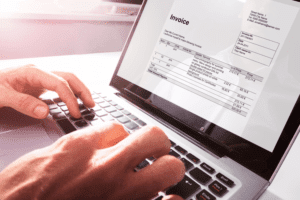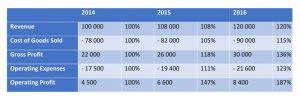
You may have heard the term “outstanding check” and wondered what is an outstanding check. As long as you know not to spend money promised to someone else, avoiding expensive consequences such as overdrafts or insufficient funds fees is possible. It may simply be that checks are not a good payment method for the payee. Inquire about other options, such as digital payments, that can take place quickly and reduce the chances of a payment being lost or expiring. ✝ To check the rates and terms you may qualify for, SoFi conducts a soft credit pull that will not affect your credit score.
What does an Outstanding Check Mean on a Bank Statement?
In U.S. accounting textbooks, every check that has not been cleared is termed an outstanding check. This is because the bank still needs to clear it on the payer’s end, as it is yet to be presented, and how is sales tax calculated the status of its clearance remains uncertain. Imagine a scenario where Sarah, a small business owner, writes a check for $800 to pay for monthly rent on her office space. She records the transaction in her accounting system by debiting rent expenses and crediting cash.
- By understanding the definition, risks, and implementing effective strategies to avoid and manage outstanding checks, you can maintain accurate financial records, prevent overdrafts, and ensure timely payments.
- ✝ To check the rates and terms you may qualify for, SoFi conducts a soft credit pull that will not affect your credit score.
- The payor gives it to the payee and notes the amount of that check as a “pending” payment until the check fully clears and the account balance is adjusted by the bank to account for the payment.
- By maintaining an organized and up-to-date check register, companies can easily identify outstanding checks and reconcile them with the bank statement.
- Someone else could be able to change the payee name or the amount if a check is misplaced or stolen before it is taken to the bank.
- Outstanding checks are significant in bank reconciliation since they can cause discrepancies between your bank balance and your own financial records.
What Are Some Best Practices for Managing and Clearing Outstanding Checks?
An outstanding check represents a payment that has been written but not yet cleared by the bank. In a double-entry accounting system, an outstanding check is considered a credit outstanding check definition for the check writer, since credits record outgoing money. The funds have been earmarked to be deducted from their bank account, even though the actual cash hasn’t been withdrawn yet. For the recipient, the outstanding check is considered a debit, since debits record incoming money. The recipient is awaiting the receipt of funds that have been promised through the check. They are simply checks that have not yet been cashed or deposited at a financial institution.
What Are Outstanding Checks In Accounting
Typically, a payor writes a check to https://www.bookstime.com/ a payee and the payee deposits the check. Whether you have a traditional or an online bank account, you can typically make a mobile check deposit with just a few clicks on your phone. Call or email payees who fail to deposit checks and ensure that the check was, in fact, received.


Also, outstanding checks may prove a hassle for an otherwise careful consumer. Keeping track of multiple uncashed checks over a long period of time makes it easier to accidentally spend the money that was set aside for a check and incur overdraft fees. If that money is spent on something else, you may not have enough money in the bank account to cover all your promises to pay. As a result, your bank account balance may fall below $0 and incur overdraft fees.

- Be mindful of what outstanding checks you’ve written before drawing down your bank balance.
- Bouncing an outstanding check can lead to financial consequences, such as fees imposed by the bank, damage to your credit rating, and potential legal actions from the payee.
- It’s important to know what an outstanding check is and the potential risks that go along with them.
- This is because most banks will cash checks up to six months after they have been cashed.
- If you’ve issued an outstanding check, you need to monitor your account.
- The check register includes details such as the check number, date of issuance, payee, and the amount of the check.
This typically occurs after a few years, but timetables vary from state to state. The difference between the balances of the cash book and bank statement caused by unpresented checks is only temporary. Keep track of it and contact the payee if you suspect they’ve forgotten or misplaced the check.

Example of an Outstanding Check in the Bank Reconciliation
For businesses and individuals alike, outstanding checks can introduce uncertainty into cash flow management. These checks represent funds subtracted on paper but not physically withdrawn. An outstanding check remains a liability of the payer until such time as the payee presents the check for payment, which then eliminates the liability.